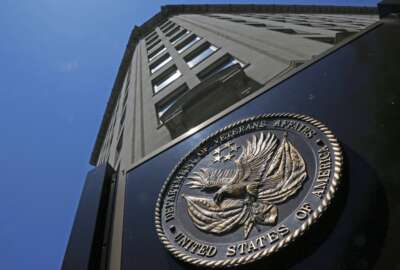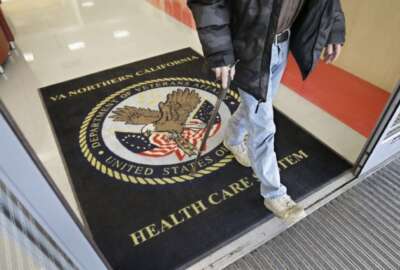Special salary rate gives VHA ‘more robust,’ longer-term tools to hire and keep HR staff
A Special Salary Rate at the Veterans Health Administration gives the agency long-term tools to compete for in-demand HR professionals.
The Department of Veterans Affairs gave its IT workforce a significant pay raise last summer, in the hopes of bringing more private-sector tech professionals into government.
More money led to more hires at the VA’s Office of Information and Technology. Now the department is counting on the same strategy to recruit and retain human resources employees that’ll oversee its health care workforce.
The Veterans Health Administration recently approved a Special Salary Rate for HR specialists and HR assistants, resulting in about a 15% pay increase. Eligible employees saw the pay bump go into effect last month.
David Perry, VHA’s chief officer for workforce management and consulting, said the SSR gives the agency long-term tools to compete for in-demand experts.
“HR has been a mission-critical occupation for the federal government for going on two decades now, and so we’ve been critically understaffed in this occupation for quite a long time,” Perry said in a recent interview.
“Our intention for the SSR is not only as a recruitment tool, but more importantly, as a retention tool, so that once we get HR on board, we can keep them into this profession,” he added.
The Office of Personnel Management typically sets governmentwide Special Salary Rates, which help agencies narrow the gap between what they and the private sector can offer in-demand experts.
But under the PACT Act — a sweeping 2022 law that expands VA health care and benefits eligibility for veterans exposed to toxic substances during their military service — the VA has the authority to set Special Salary Rates for non-medical Title 5 positions.
Perry said additional SSR proposals are in the “analysis phase” at VHA, but none have been officially submitted for approval yet.
“We’re now looking at essentially all of our non-clinical mission-critical occupations,” he said.
Before getting final approval on the SSR, Perry said VHA offered a critical skills incentive (CSI), worth up to 25% of an employee’s base salary, to HR professionals at VHA.
“Our timing was that we needed to do something immediate. And so, the critical skills incentive was that tool that we had at our disposal, to put in place to stabilize our HR workforce, as we worked through the analysis and approval process for the SSR,” Perry said.
The Special Salary Rate, he added, is a “more robust and longer-term package” for VHA than what the CSI previously offered. Unlike the CSI, the SSR does not need to be renewed or reapproved each year. It also counts toward the “high three” calculation for a federal retiree’s pension benefits.
OPM normally counts the highest three years of an employee’s base salary when calculating pensions.
“It’s more of a permanent adjustment to salary, and so it’s a much-preferred mechanism,” Perry said. “When we meet the criteria and justification for when we use an SSR, it is absolutely more employee-centric to use that authority, versus a critical skills incentive.”
VA’s ability to offer SSRs under the PACT Act lasts through September 2027, but VA OIT officials previously said the department can extend its ability to offer SSRs for an additional two years under the legislation.
VA Secretary Denis McDonough told reporters last fall that the department is putting PACT Act recruitment and retention incentives to effective use, and that they’ve helped the department far exceed its recent hiring goals.
McDonough told reporters that the VA is focused on managing the critical skills incentive and Special Salary Rate carefully, “because we are showing a pathway forward for the rest of the federal government.”
“We have these authorities in a way that many of our federal agency partners do not, and would like to have it. So, we want to make sure we manage these tools,” McDonough said at a Nov. 29 press conference.
VHA’s HR-STAR program is also bringing in a pipeline of new human resources personnel into the agency every month.
To bring in the next generation of its HR workforce, VHA is taking new graduates through a year of specialized training, to become HR professionals in areas where there’s a shortage of them.
The HR-STAR program saw its cohort graduate in October, and it’ll keep producing new VHA HR experts each month.
Perry said VHA recently assigned the fifth cohort of HR-STAR graduates into HR jobs across the country.
“Just because we have the SSR in place, it’s not a silver bullet. So we still have to focus, and really make a concerted effort on our recruitment efforts, but also making sure that we’re training our staff for that retention aspect as well,” he said. “While the SSR has definitely helped us gain some parity with the private sector and other federal agencies, we still have a lot to do to make sure that we’re still developing and growing and training our workforce as well.”
HR work at VHA is complex, and candidates with human capital experience at other federal agencies still require substantial training to understand the particulars of the VA workforce.
That’s because VHA has separate pay and workforce regulations for medical personnel — covered under Title 38 of the U.S. Code — and non-medical personnel — covered under Title 5. To further complicate things, some VHA employees fall under a third “hybrid” category, which adheres to a blend of those Title 5 rules and regulations
Perry said it takes new HR hires about three years to fully understand everything about the job.
To make sure HR-STAR graduates continue to learn new skills after graduating from the program, he said his team is working on a longer-term training curriculum.
“Part of the charge I have for my team is to look at how do we do more of a two-year, three-year continual competency assessment across some of the larger areas that are needed to develop,” he said.
Copyright © 2025 Federal News Network. All rights reserved. This website is not intended for users located within the European Economic Area.
Jory Heckman is a reporter at Federal News Network covering U.S. Postal Service, IRS, big data and technology issues.
Follow @jheckmanWFED






